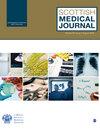肠道筛查人群中BMI、CT衍生的身体成分与结直肠肿瘤的关系
IF 1.4
4区 医学
Q2 MEDICINE, GENERAL & INTERNAL
引用次数: 2
摘要
肥胖与结直肠癌(CRC)风险增加有关。与BMI等间接测量方法不同,CT-Body composition (CT-BC)可以评估脂肪组织的体积和分布。因此,本研究的目的是研究宿主特征、BMI、CT-BC测量与结直肠癌发病率之间的关系。方法2009年7月至2016年2月期间接受CT结肠造影(CTC)作为苏格兰肠道筛查计划一部分的患者符合纳入条件。收集的数据包括人口统计学数据、临床病理变量和CT-BC测量,包括骨骼肌指数(SMI)、皮下脂肪指数(SFI)和内脏脂肪面积(VFA)。使用CTC、结肠镜检查和病理报告来确定CRC的发病率。使用单变量和多变量二元logistic回归分析人口统计学数据、临床病理变量、CT-BC测量、结直肠肿瘤和晚期结直肠肿瘤之间的关系。结果286例患者符合纳入标准。105例(37%)晚期肿瘤患者检出瘤变,72例(69%)晚期肿瘤患者检出瘤变。在多变量分析中,性别(p < 0.05)和高VFA (p < 0.001)仍然与结直肠肿瘤独立相关。在多变量分析中,高SFI (p < 0.01)仍然与晚期结直肠肿瘤独立相关。BMI与结直肠肿瘤或晚期结直肠肿瘤均无相关性。结论与BMI直接比较,CT脂肪测量与结直肠癌筛查患者的瘤变程度关系更密切。在接受CT结肠镜检查的患者中,CT脂肪测量可以对肿瘤的风险和级别进行分层。本文章由计算机程序翻译,如有差异,请以英文原文为准。
Relationship between BMI, CT-derived body composition and colorectal neoplasia in a bowel screening population
Introduction Obesity is associated with an increased risk of colorectal cancer (CRC). Unlike the indirect measures such as BMI, CT-Body composition (CT-BC) allows for the assessment of both volume and distribution of adipose tissue. Therefore, the aim of this study was to examine the relationship between host characteristics, BMI, CT-BC measurements and the incidence of colorectal neoplasia. Methods Patients undergoing CT Colonography (CTC) as part of the Scottish Bowel Screening Programme, between July 2009 and February 2016, were eligible for inclusion. Data were collected including demographic data, clinicopathological variables and CT-BC measurements including skeletal muscle index (SMI), subcutaneous fat index (SFI) and visceral fat area (VFA). CTC, colonoscopy, and pathology reports were used to identify CRC incidence. Associations between demographic data, clinicopathological variables, CT-BC measurements, colorectal neoplasia and advanced colorectal neoplasia were analysed using univariate and multivariate binary logistics regression. Results 286 patients met the inclusion criteria. Neoplasia was detected in 105 (37%) of the patients with advanced neoplasia being detected in 72 (69%) of patients. On multivariate analysis sex (p < 0.05) and high VFA (p < 0.001) remained independently associated with colorectal neoplasia. On multivariate analysis a high SFI (p < 0.01) remained independently associated with advanced colorectal neoplasia. BMI was not associated with either colorectal neoplasia or advanced colorectal neoplasia. Conclusion When directly compared to BMI, CT derived fat measurements were more closely associated with the degree of neoplasia in patients undergoing colorectal cancer screening. In patients investigated with CT colonography, CT adipose measures may stratify the risk and grade of neoplasia.
求助全文
通过发布文献求助,成功后即可免费获取论文全文。
去求助
来源期刊

Scottish Medical Journal
医学-医学:内科
CiteScore
4.80
自引率
3.70%
发文量
42
审稿时长
>12 weeks
期刊介绍:
A unique international information source for the latest news and issues concerning the Scottish medical community. Contributions are drawn from Scotland and its medical institutions, through an array of international authors. In addition to original papers, Scottish Medical Journal publishes commissioned educational review articles, case reports, historical articles, and sponsoring society abstracts.This journal is a member of the Committee on Publications Ethics (COPE).
 求助内容:
求助内容: 应助结果提醒方式:
应助结果提醒方式:


